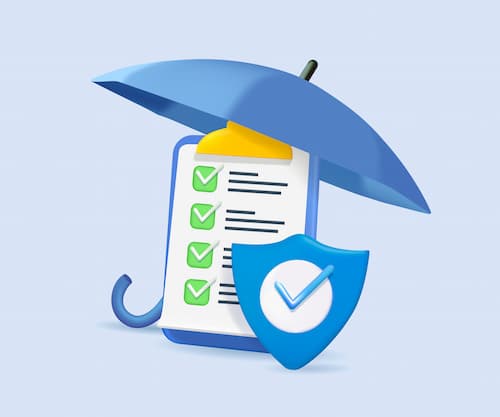Understanding personal liability coverage
Personal liability insurance is a crucial part of your home insurance coverage. It protects you against lawsuits if someone is injured as a result of your negligence, covers their medical bills and also covers you if you damage someone else’s property.
A standard home insurance policy starts with about $100,000 in liability coverage, but you should add more according to your needs. Many experts recommend $300,000 - 500,000 of protection.
Do I need personal liability coverage?
Everyone should carry personal liability coverage.
Personal liability insurance is not required by law, but it’s standard on all homeowners insurance policies because it’s vital coverage. A liability suit can devastate you financially.
"In case anyone gets hurt on your premises, you need to give them [medical] care," says Etti Baranoff, Professor Emeritus of Insurance and Finance at Virginia Commonwealth University. "The liability coverage pays for such care. The same if you destroy others' property. Liability is for bodily injury and property damage."
If someone falls down your front stairs and requires surgery, for instance, they can sue you for the medical bills. Medical bills can get into the thousands- even hundreds of thousands- depending on the situation. The lawsuit might also include lost wages and other damages.
Another common scenario is dog bites. Whether on your property or out and about in the neighborhood, if your dog bites someone, you’re liable. The liability portion of your home insurance pays for lawsuits or medical bills resulting from dog bites in most cases.
Liability insurance is the only way to protect yourself from out-of-pocket expenses for events that could wipe out your assets.
How much personal liability coverage do I need?
Most standard home insurance has liability coverage included at $100,000, but this isn’t quite enough, according to experts.
It’s generally recommended to increase that coverage to between $300,000 and $500,000. This can be done for little additional cost.
"If you have a large estate, you would want to have higher protection from any liability," Baranoff says. A good rule of thumb is to match your coverage amount to your net worth.
Does homeowners insurance cover liability?
Liability home insurance coverage is a standard part of a homeowners policy and protects you anywhere in the world.
This coverage pays claims if someone is injured on your property. It also pays out claims if your tree falls onto your neighbor’s roof. It covers medical bills for someone if your dog bites them or a lawsuit if they sue you. If you travel and damage someone’s property or cause an injury, your home insurance liability coverage follows you and pays for those damages.
When is liability coverage included in a homeowners policy?
Liability coverage is always included as standard in a homeowners policy.
"It is in homeowners policies as prescribed in the ISO (Insurance Services Offices) policies," Baranoff says. These policies are designed to provide personal risk management for individuals and families.
The only thing that will vary is the amount, so choose the appropriate coverage limit with your insurance carrier.
Home insurance liability limits
The standard amount of liability insurance in a homeowners insurance policy is $100,000. This is a base amount, and you should look into increasing it to $300,000 - $500,000. Unfortunately, $100,000 might not cover even one lawsuit or major medical bill. You would be on the hook to pay the rest out of pocket and could lose your home and other assets.
You can purchase umbrella insurance for an additional cost. This provides excess liability coverage and increased limits above and beyond the base amount of your policy. Some umbrella policies also cover additional situations and not just higher dollar amounts. For instance, there are additions for libel, slander, and false imprisonment among other things.
A $1 million umbrella policy might run you about $380 extra per year. Discuss with your agent or carrier and decide what’s best for your situation.
SOURCES:
The Insurance Services Office. “Homeowners Property Coverage”. Accessed October 2023.







